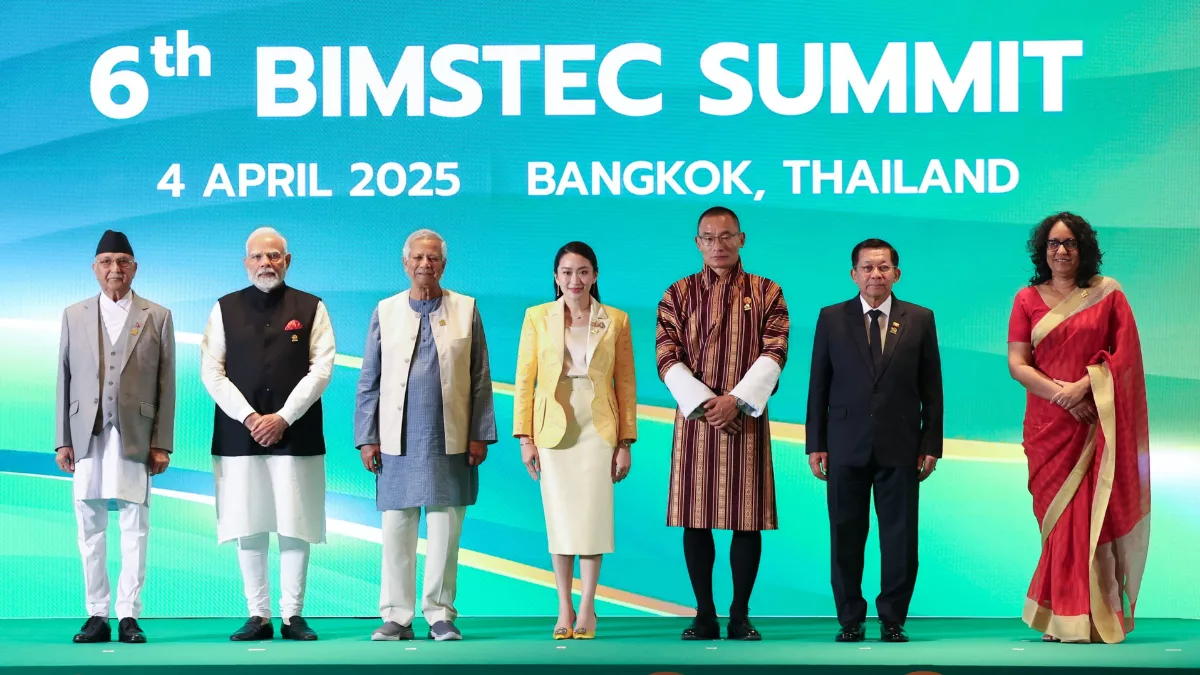The recent meeting between Prime Minister Narendra Modi and Bangladesh’s interim leader Muhammad Yunus at the BIMSTEC summit in Bangkok marks a crucial moment in the evolving relationship between the two South Asian nations. With former Bangladesh Prime Minister Sheikh Hasina’s departure from power and India’s decision to provide her sanctuary, ties between New Delhi and Dhaka have taken an uneasy turn.
The challenge now is to navigate these tensions and work towards a stable, mutually beneficial partnership. India and Bangladesh share deep historical, cultural, and economic ties. India played a pivotal role in Bangladesh’s 1971 liberation, and under Sheikh Hasina’s leadership, relations between the two nations had been largely stable. However, the circumstances surrounding her exit, the rise of anti-India sentiment in Bangladesh, and Dhaka’s request for her extradition have placed New Delhi in a diplomatic bind.
Advertisement
Giving her shelter has been met with resistance in Dhaka, where the interim administration is pressing for her return to face trial. India’s reluctance to comply with this request signals a calculated approach ~ one that prioritises regional stability over immediate appeasement. At the heart of this diplomatic impasse lies a shift in political sentiment within Bangladesh. Public opinion, once largely favourable toward India, has soured in some quarters, fueled by accusations of undue interference in Bangladeshi affairs. The Yunus-led government appears keen on recalibrating the nation’s foreign policy, seeking to assert greater independence. In this context, Prime Minister Modi’s call for avoiding rhetoric that could vitiate bilateral ties is both timely and necessary.
The issue of minority rights in Bangladesh also remains a point of contention. India has consistently raised concerns over the safety of Hindus and other minority communities, particularly in the wake of Sheikh Hasina’s departure. While Dhaka downplays these concerns, violence against minorities has been a recurring issue that cannot be ignored. Mr Modi’s appeal to Muhammad Yunus for a thorough investigation into such cases underscores India’s commitment to protecting human rights beyond its borders. Despite these challenges, there remains a strong foundation for cooperation. Economic engagement between the two nations has flourished, with trade and infrastructure projects benefiting both sides.
The geographical proximity and shared interests in regional connectivity, counter-terrorism, and climate change demand continued collaboration. The BIMSTEC summit itself serves as a reminder that both nations are integral to regional stability and economic progress. Going forward, the priority should be to rebuild trust and re-establish diplomatic equilibrium. India must balance its strategic interests with diplomatic tact, ensuring that its engagement with Bangladesh is seen as constructive rather than coercive.
For Bangladesh, embracing pragmatic diplomacy rather than confrontation will be essential in maintaining stability and securing long-term development. A reset in relations is inevitable, but how it unfolds depends on the willingness of both sides to engage in honest dialogue. Now is the time for both nations to reaffirm their commitment to cooperation and ensure that political shifts do not erode decades of partnership.









